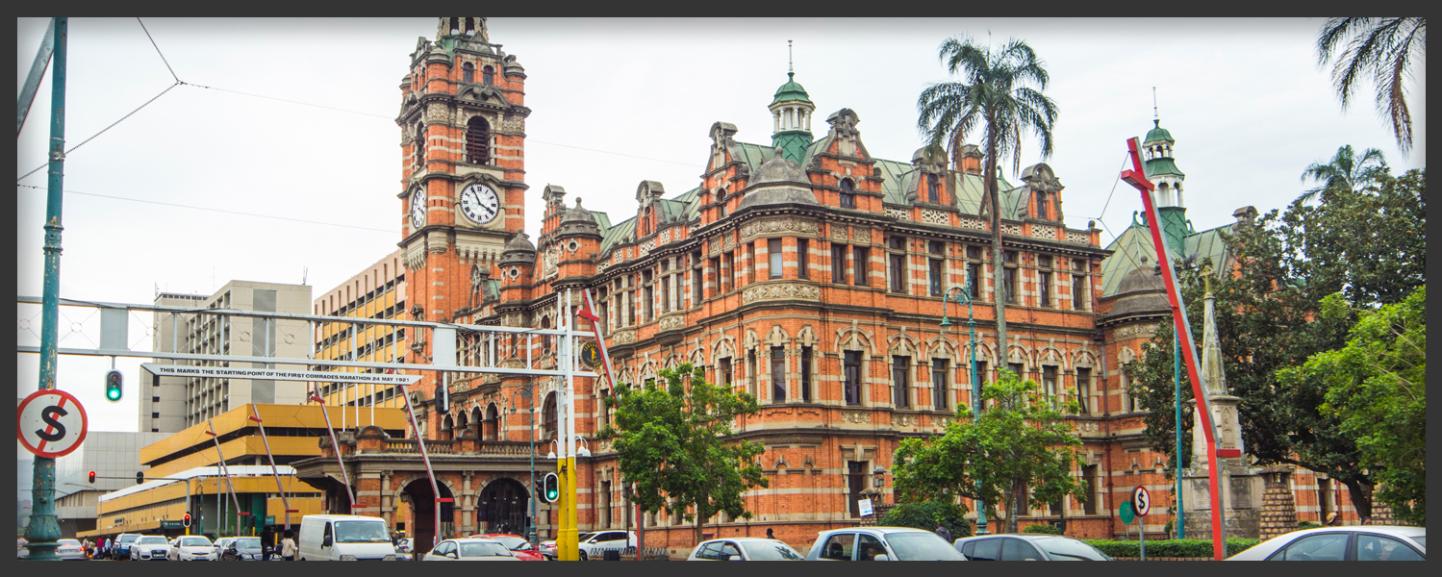Prior to the end of apartheid in 1994, Pietermaritzburg was the capital of Natal Province. Following the first post-apartheid elections in South Africa, as a result of which the Inkatha Freedom Party won a majority in the KwaZulu-Natal provincial government, Pietermaritzburg shared its status as capital of the (then newly-created) province of KwaZulu-Natal with Ulundi.
Pietermaritzburg became the legislative capital of the new province, while Ulundi became the administrative capital.
The IFP, being strongly Zulu nationalist, desired that Ulundi, the capital of the Zulu Kingdom at the time of its fall to the British in the Anglo-Zulu War, be the post- apartheid capital of the province. Ulundi had also been the capital of the bantustan KwaZulu, which makes up a portion of modern KwaZulu-Natal.
However, Ulundi severely lacked the infrastructure to be an effective seat of government, and the African National Congress (ANC) and the Democratic Party, the two other strong political parties in the province, among others, called for Pietermaritzburg alone to be the capital. The debate came to an end when the ANC came to power in the province in 2004, and named Pietermaritzburg the sole capital of KwaZulu-Natal. This has resulted in the relocation of several government offices to Pietermaritzburg.
This has generally been welcomed as a positive development for the region. Since 2004, progress such as the modernization of several buildings in the city centre and a proliferation of retail and housing developments in the suburbs are results of recent investment in the city by both the public and private sectors.
The legislature:
The KwaZulu-Natal Legislature is the primary legislative body of the South African province of KwaZulu-Natal. It is unicameral in its composition, and elects the premier and the provincial cabinet from among the members of the leading party or coalition in the parliament.
The provincial legislature consists of 80 members, who are elected through a system of party list proportional representation with closed lists. In other words, each voter casts a vote for one political party, and seats in the legislature are allocated to the parties in proportion to the number of votes received.
The seats are then filled by members in accordance with lists submitted by the parties before the election. The legislature is elected for a term of five years, unless it is dissolved early. This may occur if the legislature votes to dissolve and it is at least three years since the last election, or if the Premiership falls vacant and the legislature fails to elect a new Premier within ninety days.
By convention all nine provincial legislatures and the National Assembly are elected on the same day.




